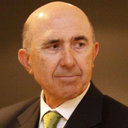[Sleep apnea syndrome and cerebral infarction].
Keywords
Abstract
OBJECTIVE
To analyze the relationship between snoring and sleep apnea with brain infarction.
METHODS
We studied 79 consecutive patients of both sexes with cerebral infarction and 248 age and sex matched controls. We obtained data reflecting arterial hypertension, diabetes mellitus, hypercholesterolemia, smoking and drinking habits, coronary heart disease, cardiopathy, snoring, respiratory pauses during sleep and daytime sleepiness, by using a standard questionnaire to interview every subject and his/her spouse.
RESULTS
53% of patients and 46% of controls snored often or always (p = 0.27). Snoring was significantly more frequent in men. Thirty four percent of patients and 27% of controls were snorers and suffered apnea during sleep (p = 0.19). Nineteen per cent of patients and 11% of controls presented snoring, respiratory pauses during sleep and daytime sleepiness simultaneously, suggesting obstructive sleep apnea syndrome (OSAS) (p = 0.06). However, by separately analyzing people younger than 65 years, the frequency of OSAS was significantly higher in patients (29%) than in controls (7%) (p = 0.006). Finally, 10% of patients and 3% of controls presented snoring, respiratory pauses during sleep and moderate or severe daytime sleepiness simultaneously, suggesting moderate-severe OSAS (p = 0.01). A multiple logistic regression analysis confirmed the independent contribution of moderate-severe OSAS as a risk factor for ischemic stroke, with an adjusted odds ratio of 4.54. In people younger than 65 years, OSAS, regardless of its severity, was also an independent risk factor for ischemic stroke, with an adjusted odds ratio of 5.78.
CONCLUSIONS
Clinically diagnosed obstructive sleep apnea syndrome is an independent risk factor for ischemic stroke, especially in people younger than 65 years.


